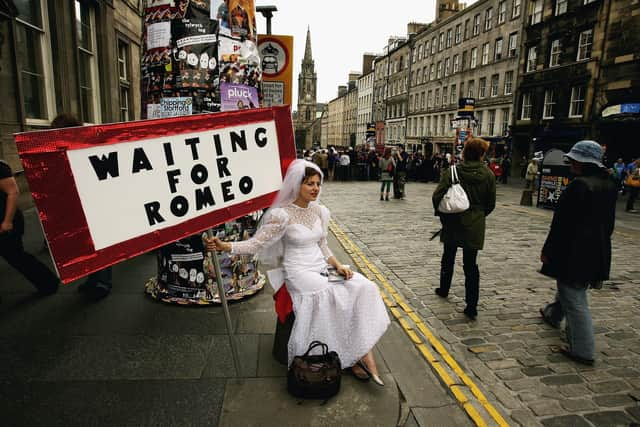Edinburgh Festival Fringe: If city doesn't love its golden goose, another could steal it away – Stephen Jardine
Similarly, someone is always ready to predict the demise of the Edinburgh Festival Fringe. From those in the 1950s who feared it had already grown too big when it reached 100 performances to the puritanical politicians who warned it would slide into the gutter with the glimpse of a rolled-up trouser leg, the world’s biggest arts festival has never been far from controversy.
However, right now, something feels different. During the pandemic, the Fringe nearly went into administration after two years without any income. It survived thanks to private donations and government loans but what had seemed to be an unstoppable juggernaut now looked like a rickety charabanc.
Advertisement
Hide AdAdvertisement
Hide AdWhat the Fringe needed more than anything else was a clear run down an open road. Instead, it faces some of the biggest obstacles in its 76-year history. New restrictions on short-term lets are a well-intentioned attempt to deal with the over-provision of Airbnb accommodation but the implications for the Fringe are huge with estimates suggesting £30 million in revenue could be lost as performers struggle to find places to stay.
Last year ticket sales fell by 25 per cent in the face of sky-high accommodation costs. We need to be widening the net and looking for new, innovative, affordable, and perhaps temporary places for people to stay but instead we’re using a sledgehammer to crack a nut.
On top of that, veteran Fringe comic Richard Herring last week warned that Edinburgh in August is now unaffordable and "only people with a fair amount of wealth can attend”. “It should be for everyone, as it felt like it was back in 1987 when I first went there,” he added.
That’s certainly the mission of Fringe chief executive Shona McCarthy who came here from Northern Ireland with an impressive background in opening the arts up to the people. However, achieving her vision for the Fringe requires proper buy-in from politicians and right now that seems to be lacking.
For some time, the Fringe has been seen as a liability rather than an asset. Rapid growth and the cavalier actions of some of the bigger Fringe promoters led to the acceptance that it was a problem requiring a solution. The two years without a Fringe should have put paid to that and reminded all of us how hollow summer in Edinburgh can be without the annual August extravaganza. Instead, it just seems to have given the perceived grievances extra time and space to fester.


The result is an event that looks decidedly unloved and that is risky. Just look at the competition to become UK City of Culture. Beyond that, Liverpool has seized upon the Eurovision Song Contest with unbridled enthusiasm and the promise of an amazing night in the spotlight. Can you imagine something of that magnitude coming to Edinburgh in the current climate?
The biggest danger to the Fringe is not the fallout from the pandemic but a lethargy and complacency that goes with something that has been part of the city’s fabric since 1947. If we don’t learn again to love our golden goose, someone else will.
Comments
Want to join the conversation? Please or to comment on this article.